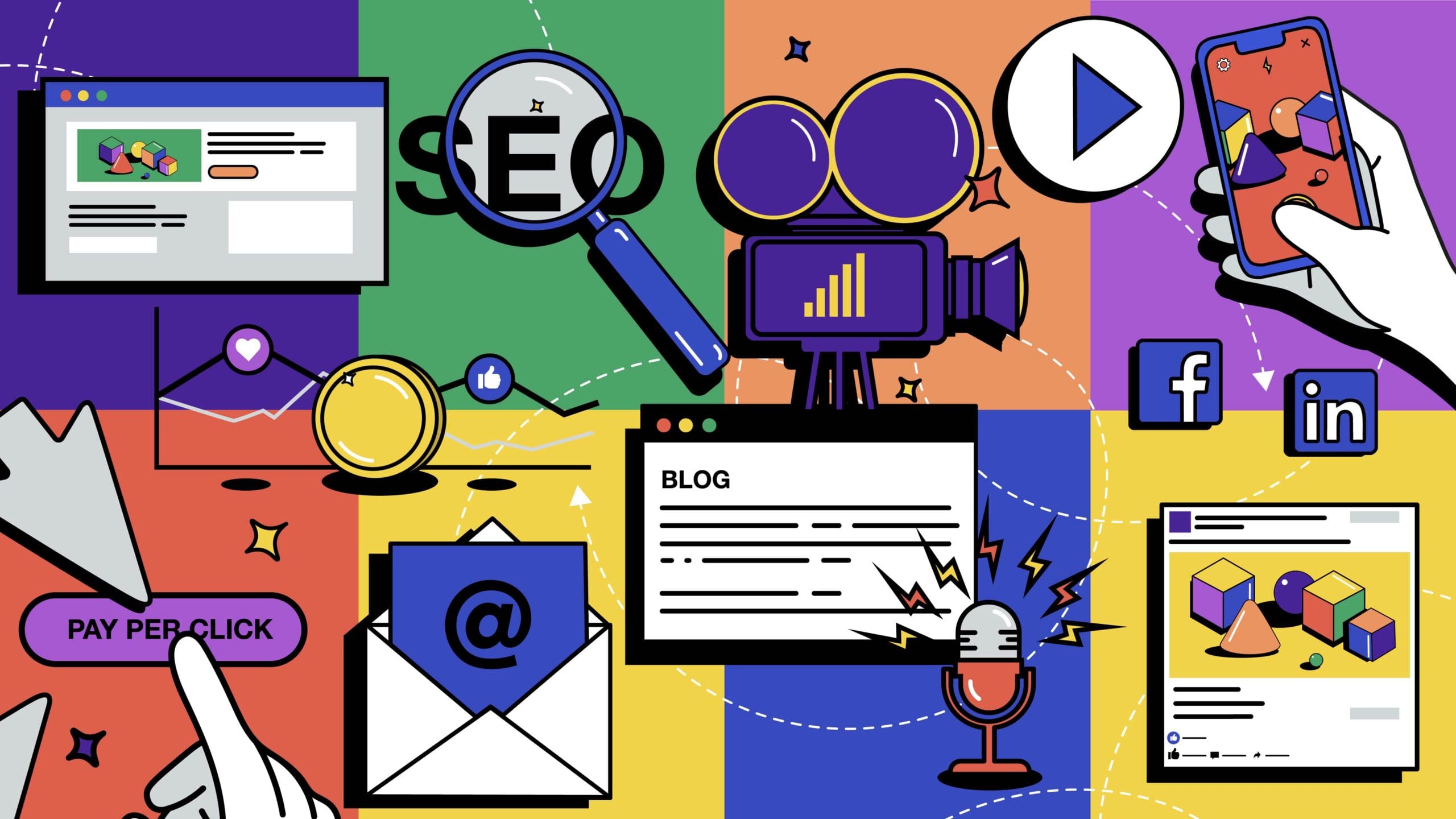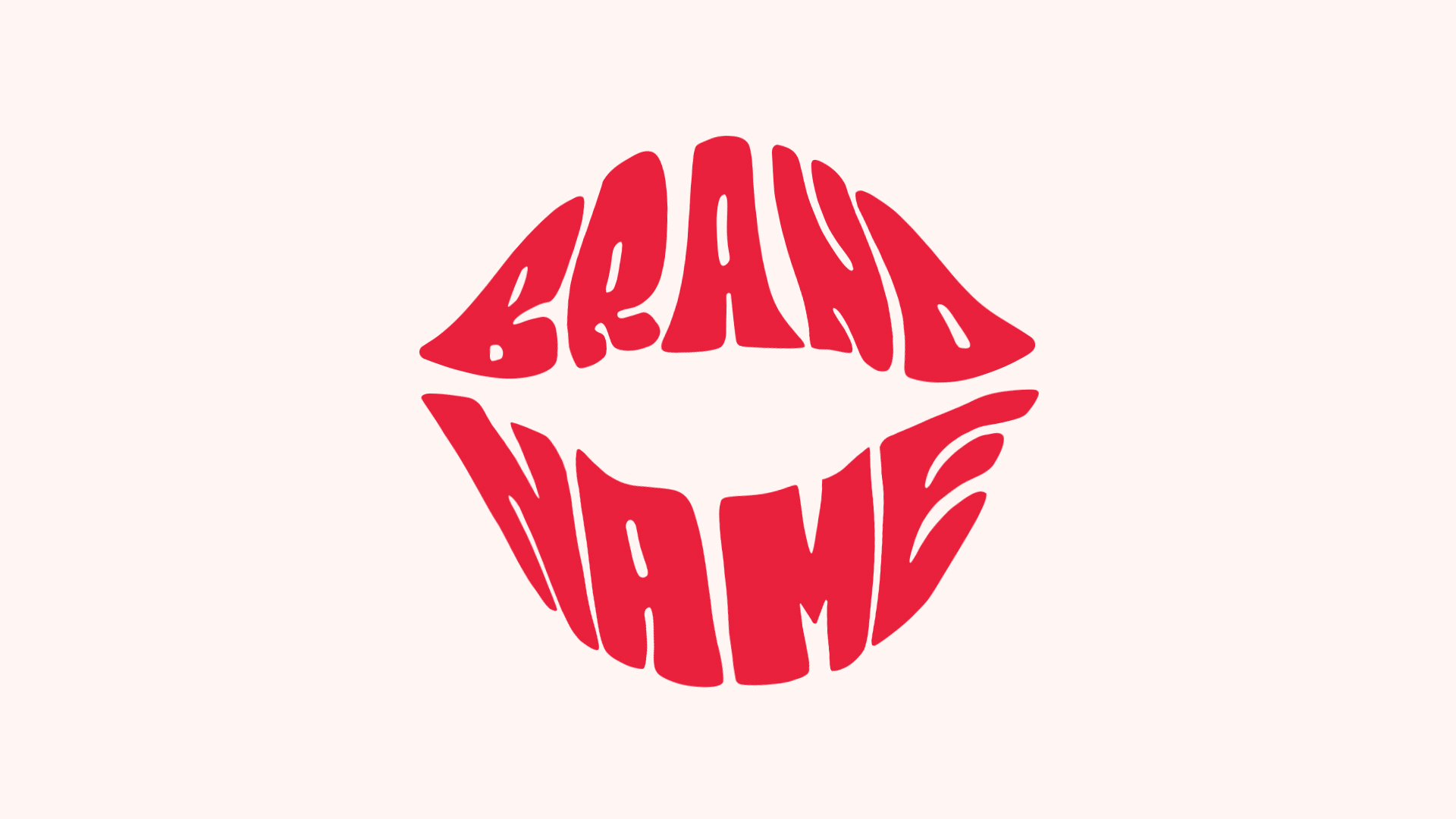If there’s one trend we’ve noticed in 2020 – especially given the recent outbreak of COVID-19 forcing many businesses to close their brick and mortar stores – it’s that more businesses than ever are turning to the internet to drive revenue.
But, success on the internet isn’t as simple as whipping up a store on Shopify and waiting for the orders to come rolling in.
To be successful online, you need to understand the fundamentals of digital marketing. Otherwise, potential shoppers or clients won’t be able to find you. And, if they can’t find you, they’re definitely not going to shop with you.
In this article, updated for 2020, we’ll be giving you a crash course in digital marketing.
By the end, you’ll not only understand what it is and how it can help you but also learn a few tricks to apply to your own business. (Unless you’d rather have the pros do it for you 😏 – WARNING! This may result in serious increases in your sales).
Let’s get to it!
So, just what is digital marketing?
Digital marketing is one of those things, like trying to explain digital transformation, that everyone has a different definition for.
In essence, however, it’s pretty simple. Digital marketing is any form of marketing activity that utilises digital technology.
If you’re being displayed an ad while using a device that’s connected to the internet, that’s digital marketing in action.
Okay, why should I use digital marketing?
12 months ago, I’d probably have started this paragraph saying something along the lines of “digital marketing is one of those channels that many businesses underestimate.”
That said, 2020 has sparked something of a revolution for digital marketing as many businesses have had to transition to the web in order to keep cashflows lucrative while we’ve all been in lockdown.
As such, more businesses than ever are realising the massive potential marketing through the web can bring.
That said, there are still non-believers out there. If you fall into that category, firstly, you’re wrong. Secondly, hear me out, I’ll convince you yet!
If you’re already a believer, feel free to skip to the next section about types of digital marketing. Unless of course, you want to hear a funny anecdote about why many business owners write digital marketing off when they shouldn’t. The choice is yours.
A true story about why digital marketing fails (and how to avoid it)
One of my pals works for a Youth Work charity. I won’t name his name or the charity he works for.
He wanted to get some interest in an event he was running and decided he’d run a Facebook Ads campaign.
So far so good, Facebook Ads are a great way to raise awareness for pretty much anything.
He put a little bit of budget behind the ad and ran the campaign for a couple of weeks.
It failed.
Naturally, he felt compelled to tell me the story and give his assessment of Facebook Ads.
He summed up his opinion in 6 words: “Facebook Ads suck, they don’t work!”
When he told me the story, I wasn’t surprised at all that it failed though. Digital marketing works miracles – but only if you know what you’re doing.
Putting up an ad, without understanding all the minutiae that go into making a campaign successful, is like saying a guitar’s broken because you don’t know how to play it.
I was quick to point out that we have a client who bumped average monthly sales from £7,000 per month to in excess of £40,000 through Facebook ads alone. Long story short – they definitely work!
Anyway, here’s the moral of the story. Most people who write digital marketing off fall into two camps: they’ve either never tried it or they’ve tried it and failed.
But, the truth is, once you know what you’re doing, you can get some seriously impressive returns. So it’s well worth investing the time to understand it a little better.
Which leads us nicely into the next section of the article…
Types of digital marketing
Digital marketing is made up of various different types of marketing that happen on a huge number of different channels.
In this section, we’ll go through the most common types of digital marketing.
SEO
SEO stands for search engine optimisation. In essence, it means optimising your website to rank for terms people might search for if they were interested in a product you sell.
SEO is a key focus for many businesses because it allows websites to rank in the organic section of search results. When you have a website that ranks #1 for various search terms, you can get a lot of website traffic without having to pay for advertising.
PPC
PPC, or pay-per-click advertising, is paid search advertising. These are the results that are usually displayed at the top of the page when you search for something on Google.
The benefit of PPC advertising – often referred to as Google Ads – is that you can pay to be displayed at the top of search results. Naturally, this helps you funnel a lot more traffic to your website by capturing search terms you’re unable to capture with SEO.
Social media
Social media advertising can be split into two categories.
On the one hand, you have organic social media. This is creating a free page on a social media channel – like Facebook, Twitter, Instagram or Pinterest – and then promoting your products to your followers for free.
And, on the other hand, you have paid social media. This is paying to have your ads displayed in front of users who don’t currently follow you, allowing you to reach a much wider audience of potential buyers.
Email marketing
Despite commonly being cited as “dead”, email marketing is still a lucrative channel to market on. At it’s simplest, email marketing is sending promotional emails out to people who have subscribed to receive emails from you.
When you get it right, Email marketing offers one of the best returns on investment of any channel. Crafting a sales email isn’t time intensive, so you only need a few of your subscribers to click through to your offer in order to get a hefty return.
Content marketing
Technically, any of the channels we’ve discussed so far could fall under the bracket of content marketing. However, I’ve included it here as it’s a distinct approach that’s often utilised in digital marketing strategies.
Essentially, it’s the creation of content to raise awareness of your brand. It includes things like blogs, videos, eBooks, podcasts, white papers and much more. To learn more about content marketing in-depth, check out this useful article.
Video marketing
Video marketing is the use of animations, GIFs, live-footage or a combination of all of these to promote your products. The bulk of video marketing happens on YouTube. Those videos you see while waiting for videos to load? That’s video marketing in action.
That said, you can also utilise various other channels for video marketing, such as Facebook, Instagram, LinkedIn, and native and display advertising (I’ll cover these in-depth shortly).
Referral marketing & digital PR
Referral marketing & digital PR is the practice of getting other websites to link to your website. As an example, if you have an athletic wear business, it’d be super valuable to have a fitness blogger link to your website.
Digital PR, specifically, is the practice of getting your website linked to by various media outlets. This could be a big news channel or industry-specific news website.
These can be extremely useful practices since they allow you to capitalise on the high viewership of other websites to build your own reputation and generate sales.
Native advertising
Native advertising is a style of advertising in which you pay to have pieces of content featured on another website. It’s called native because the content is designed to look similar to the platform it’s hosted on.
Facebook advertising is an example of native advertising in action, as the ads are designed to emulate the look and feel of a standard post. Similarly, you’ll often find forms of native advertising on news and media websites, styled in a similar fashion to stories, articles and features.
Display advertising
Or, as they’re more commonly known, banner ads. In essence, any website on which you see some form of banner, whether it’s at the top of the page or on the sidebar, is a display ad.
Like most paid social media ads, with display ads, you tend to pay based on the number of users who see your ad. In marketing circles, this is often referred to as the number of impressions.
Influencer marketing
A few years back, influencer marketing was all the rage. And, though it’s still worth exploring, the buzz surrounding it has died off a little.
With influencer marketing, you essentially pay celebrities or high-status people with big followings to promote your products. Although it can happen on multiple channels, it’s synonymous with Instagram. Many big-name brands pay users with high-follower counts to promote their products.
Do you need a website to use digital marketing?
In my personal opinion, every business should have a website that users can explore to learn more about their business. There are really no downsides to having a high-quality website.
That said, in the spirit of being unbiased, I’ll point out here that there are a few examples where having a website isn’t totally essential.
If, for instance, you’re a restaurant or service-provider – like a barber or salon – you could get away with having only a Google My Business listing. This way, whenever people look for services you provide, you’ll show up on the business listings on Google Maps.
Similarly, some businesses also thrive by only having social media channels. Though this is the exception, not the rule.
For pretty much all other businesses, especially ones without brick and mortar stores, a website is essential for digital marketing.
Is digital marketing right for my business?
In today’s world, where more and more consumers are using the web to make purchase decisions, digital marketing is absolutely right for all types of businesses.
That said, how you should approach your digital marketing depends on what space you’re operating in. Business to business organisations will need to adopt a very different strategy to business to consumer organisations.
Digital marketing for b2b
For those operating in the business to business space – the 2 key areas of digital promotion will be LinkedIn and Email.
This is because many key business decision-makers will spend a big chunk of their time day-to-day engaging with both of those platforms – so they’re the best place to reach them.
Digital marketing for b2c
For business to consumer organisations, you probably won’t get much luck from promoting on LinkedIn – most of us don’t turn to LinkedIn to browse the latest products we’re interested in!
Instead, you’ll benefit from promoting content on social media channels such as Facebook, Instagram and Pinterest. Many users will engage with these platforms before making a purchase decision.
You’ll also want to explore Google Shopping Ads – these are the sponsored product recommendations that appear in the sidebar whenever you search for a product on Google.
By having your products listed here when users search for products similar to the type you offer, you’ll be able to catch their attention, drive traffic to your website and hopefully win the sale!
Do I need a big budget for digital marketing?
You absolutely don’t need a big budget to make digital marketing work for your business.
There are plenty of businesses out there that have gained incredible success utilising free digital marketing channels such as organic Google search and organic social media.
That said, having a budget will open a lot of doors for you.
This is because sponsored ads allow you to reach whatever audience size you choose. So you can put your products or services in front of a much greater number of people.
Just remember, it’s not all about having the highest budget.
If you funnel a high amount of budget into a poorly managed Facebook campaign, for instance, it’s unlikely that you’ll see too much success. Even with all the money in the world!
On the flip side, a well-managed campaign with a lower budget could have a lot more success in spite of the lack of money.
One of the great things about digital marketing is that it’s so easily scalable. You don’t need to foot a big upfront cost to get going.
You can start small and slowly increase spend as you see sales improve month-on-month.
How long to see results from digital marketing?
How long it takes to see results from digital marketing has a lot to do with what industry and space you’re operating in.
For b2b businesses with high-ticket products – £500 and upwards – it’s not as simple as promoting an ad and getting a sale from your first click.
This is because large organisations often have multiple decision-makers and a hierarchy of leaders a purchase decision needs to go through before a sale is made.
For this reason, we often recommend monitoring early signs of engagement such as enquiries, newsletter sign-ups, the volume of website visitors, website bounce rate and time spent on-site in the early phases.
That said, realistically, you should expect to start seeing solid results within 3-6 months.
If you get to this point and still aren’t having much luck, however, don’t write off digital marketing straight away.
Chances are you probably just need to spruce up a few of the steps in your sales cycle.
It’s always worth consulting with a digital marketing pro to diagnose any potential issues that might be preventing you from getting the most from your efforts.
On the flip side, if you’re a b2c client, you can easily expect to start seeing results immediately.
If you have a relatively low ticket item – anywhere between £10-100 – users won’t need too much time to deliberate on whether or not to purchase. So you should expect to see sales increasing from launch day.
Again, if you’re not getting the return you expect, make sure to have an expert look over your marketing material to help you fix any issues that might be holding you back.
Is digital marketing better than traditional marketing?
We may be a little biased – but we’d say the answer to this question is a unanimous yes!
Unlike traditional marketing methods – in which you pay an upfront cost for advertising space – with digital marketing you pay as you go.
This makes it especially worthwhile for smaller businesses with lower budgets. You can simply increase advertising spend as your business and sales grow.
There’s also the added benefit of split-testing.
With traditional marketing channels, you create a campaign and then sit with fingers crossed hoping it lands as successfully as you want.
With digital marketing, you can experiment with multiple different varieties of ads at a relatively low-cost, allowing you to discard underperforming ads and double-down on high-performing ads.
This means you can tweak and tinker with ads on and ongoing-basis, continually optimising each element until you’re getting the absolute maximum value from your budget.
Where does mobile marketing come into the mix?
As of Q2 2020, over 50% of website traffic happens on a mobile device.
For this reason, it’s vital that you optimise your digital marketing to suit mobile devices.
At a minimum, this means having a mobile-responsive website that allows users to easily browse your products and services at smaller screen sizes.
You should also keep this fact in mind when crafting any ads that are likely to appear on mobiles – such as FB ads, banner ads or Google ads.
As an example, crafting some lengthy copy for a FB ad might do a great job of engaging users on desktops or laptops.
But that same ad isn’t likely to catch the attention of speedier scroller on a mobile. So you’ll want to ensure that you create a second version – with shorter, snappier text for mobile – in order to better capture the mobile market.
Aside from this, all the principles of digital marketing apply to mobile marketing. Just stick to the process and you’re bound to see great results!
What should I do next?
Whoa! That was a lengthy one! But hopefully, it’s given you a much better understanding of what digital marketing is and how it can bring huge benefits to your business.
For next steps, if you’d like to learn more about digital marketing, as well as pick up some tips to help you implement your own digital marketing strategies, check out some of the in-depth articles below.
- 3 step digital marketing strategy
- 6 tips for a better website
- 3 step recipe to improve your Google Ads
- How to write better marketing copy
- An introduction to content marketing
- A guide to winning at social media
Alternatively, if you’d rather have a team of pros handle it for you, we’d love to hear from you.
Just follow this link to get in touch and start a conversation about how we can help.



